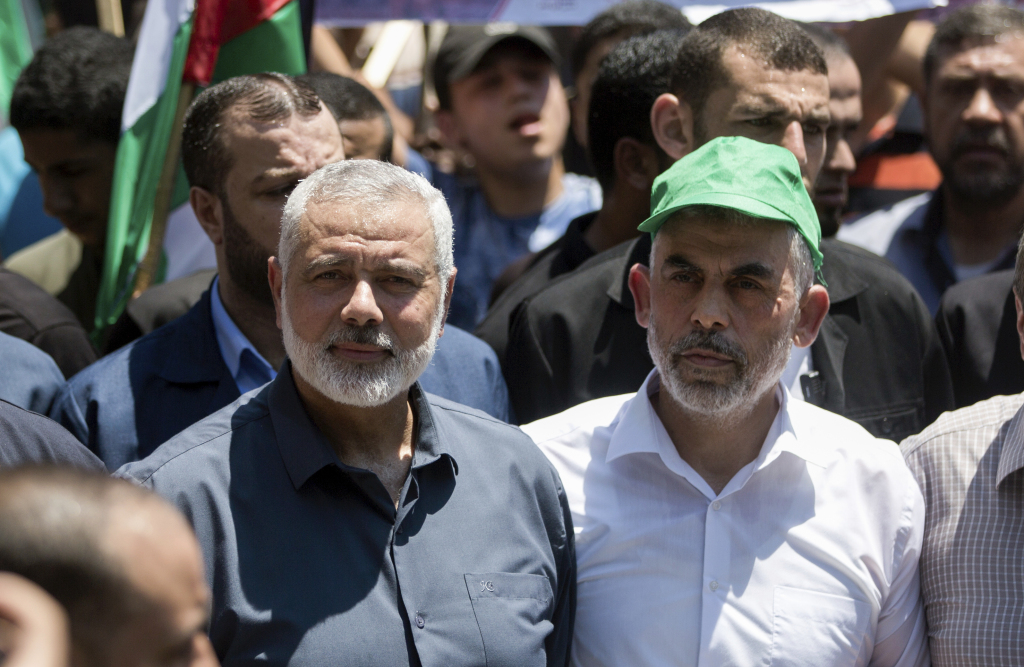The killing of Hamas leader Yahya Sinwar by Israeli forces this week has left the Palestinian militant group in search of new leadership for the second time in just a few months. This raises questions about whether Hamas will shift away from its hard-line approach or double down, and what this means for the group’s future and the potential for cease-fire and hostage exchange negotiations with Israel.
Sinwar, who replaced Ismail Haniyeh after Haniyeh’s death in July — an event widely attributed to an Israeli strike in Iran — was known as a key figure in the October 7, 2023 attack on southern Israel, which escalated the Gaza conflict. His appointment as leader at that time was seen as a defiant move, dashing hopes that Hamas might pursue a more diplomatic path.
Although Sinwar’s death, reportedly in a confrontation with Israeli troops on Wednesday, is a significant symbolic victory for Israel, it is unlikely to have an immediate impact on Hamas’ operations. The group continues to resist Israeli forces, maintaining both its military and political presence despite being largely driven underground in Gaza.
Sinwar’s death has little immediate impact on Hamas
Bassem Naim, a Qatar-based member of Hamas’ political bureau, pointed out that Israel has previously killed high-ranking Hamas leaders like Sheikh Ahmed Yassin and Abdel Aziz Rantisi in 2004, yet the group only grew stronger, with its leaders becoming symbols for future generations. Sadeq Abu Amer, head of the Turkey-based Palestinian Dialogue Group, also suggested that Sinwar’s death would not disrupt the political structure of Hamas, as the group’s governance has largely been managed by a collective leadership, especially given the communication challenges between Sinwar in Gaza and the group’s political leaders outside.

The question now is who will replace Sinwar. His term, set to expire in 2025, was meant to be temporary. Thabet al-Amour, a political analyst in Gaza, noted that there’s no urgency to appoint a new political bureau head, as Sinwar’s deputy, Khalil al-Hayya, already manages many of the group’s affairs. Some speculate that the group might maintain its current collective leadership approach or elect one of three regional leaders: al-Hayya in Gaza, Zaher Jibril in the West Bank, or Khaled Mashaal, who oversees areas outside of Palestinian territories.
As for potential successors, Khalil al-Hayya and Khaled Mashaal, both based in Qatar, are the most likely candidates. Al-Hayya, who has played a key role in cease-fire negotiations and has survived past Israeli airstrikes, is seen as close to Iran but more moderate than Sinwar. He has expressed willingness to consider a long-term truce with Israel and the dissolution of Hamas’ military wing if a Palestinian state is established along 1967 borders. Mashaal, who served as Hamas’ political leader from 1996 to 2017, is also viewed as a more moderate figure with strong ties to Qatar and Turkey.
Some have suggested that Sinwar’s brother, Mohammed, a military figure in Gaza, might succeed him, though analysts believe that’s unlikely. Instead, the death of Yahya Sinwar, one of Hamas’ most hardline leaders, could pave the way for more moderate elements within the group’s leadership abroad to gain influence.
Cease-fire negotiations
In the immediate aftermath of Sinwar’s death, however, Hamas’ stance on cease-fire negotiations remains hardline. Khalil al-Hayya has made it clear that no Israeli hostages will be released without the withdrawal of Israeli forces from Gaza and an end to the aggression. Yet, there is a possibility that figures like Mashaal, who is known for his diplomatic flexibility, might lead to a moderation in Hamas’ position in the long run, especially with the involvement of Qatar and Egypt in mediation efforts.
Sinwar’s death could complicate future hostage negotiations, however, as he was reportedly the only leader fully aware of the locations of the Israeli hostages held in Gaza, adding further challenges to the already fraught talks.